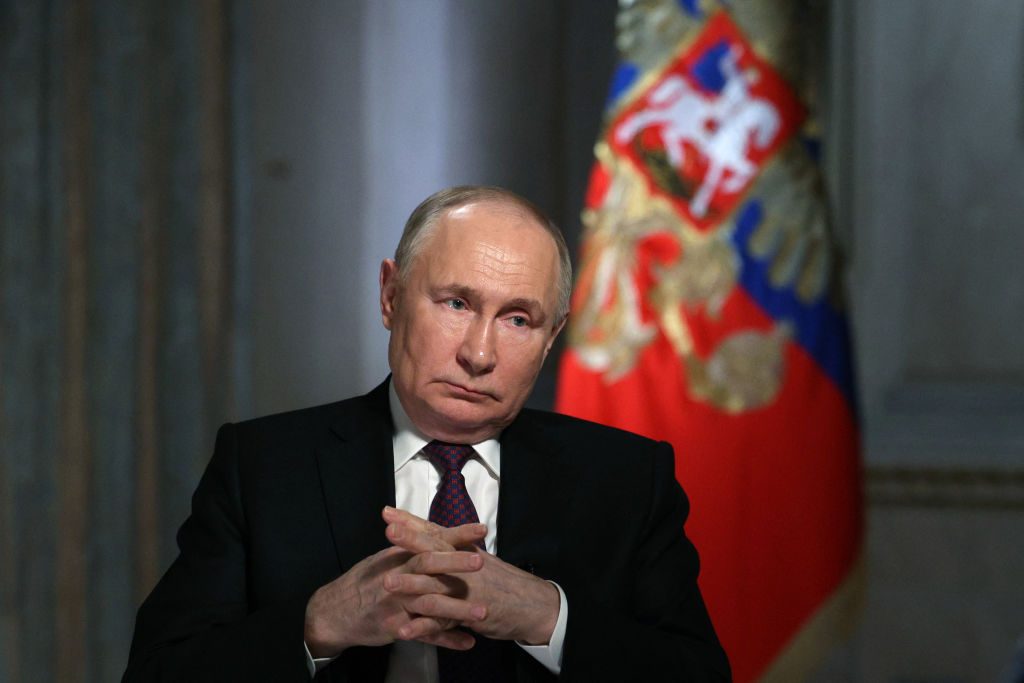Predictions that the Russian economy is on the verge of collapse are nothing new. Those forecasts have circulated widely since 2022, when the United States and Europe first imposed unprecedented sanctions on Moscow as punishment for invading Ukraine. But this wishful thinking has received a boost in recent weeks, in the wake of new reporting suggesting that the country’s oil exports are falling and its budget deficit is rising.
So, are we finally approaching the moment when Russia’s economy can no longer sustain its war machine, forcing President Vladimir Putin to pull back from his supposedly maximalist demands?
Regardless of the answer, this question entirely misses the point. There is no set of economic costs or amount of domestic economic pain that will cause Putin to stop the war before he achieves his objectives. As a result, efforts by Europe and the United States to leverage economic measures to force Russia into accepting a ceasefire will continue to fail, no matter how draconian they become.
Since the beginning of the war, the US and Europe have put their faith in sanctions as the best way to choke off Russia’s ability to keep fighting. Nearly four years and dozens of sanctions packages later, the Russian economy is still afloat and its army is advancing, albeit slowly, on the battlefield.
To be sure, the Russian economy has faced headwinds because of Western penalties, but Moscow has effectively limited the fallout for average consumers. Meanwhile, Russia’s defence industry has shifted to a wartime footing, producing massive amounts of military equipment and boosting industrial production. It’s a bubble that won’t burst for some time.
For Putin, the current war in Ukraine is an existential one. Having staked so much on his “special military operation”, he simply cannot afford to waver from his core objectives until they are achieved. His legitimacy and legacy now depend on his ability to sell the outcome of the war in Ukraine as a success to Russians. No cost is too high to reach this end state. Already, he has sacrificed much to keep the war going.
Since 2022, Russia has been a bystander as key global allies have faced internal upheaval and external threats. Former Syrian president Bashar al-Assad was removed from power last year, while Iran has suffered punishing attacks from the United States and Israel. Moscow has watched as Washington has made political inroads with traditional Russian partners in Central Asia and the Caucasus region. Russia has also been forced to accept unequal economic deals with countries including China, on which it now depends heavily, and even to seek assistance from international pariahs such as North Korea.
And then there are the costs in terms of military materiel expended and human lives lost. Estimates suggest that Russian casualties, including those killed and wounded, now total over a million, and Russia’s military has burned through what were deep stockpiles of ammunition and other expensive military hardware.
Against this backdrop, even the high economic costs imposed by the United States and Europe — which some estimate at about $500 billion — and the economic pressures created by high military spending almost seem to pale in comparison. Having put so much on the table, it is unthinkable that economic considerations would be what force Putin to settle for less than the goals he laid out in 2022. It seems much more likely that even as the economic outlook worsens, which it will, Moscow will make the adjustments necessary to wring more military financing out of the Russian economy, regardless of the near- or long-term consequences of such a move. Given Russia’s resilience and the skill of its economic technocrats thus far, we should not underestimate Moscow’s ability to navigate even challenging economic conditions for some time.
Policymakers in the United States and Europe will continue to push for new sanctions packages, promising — as they have in the past — that just one more round will be the difference maker, the one that brings the war to a close. No matter the economic consequences of whatever measures they dream up, they will continue to be wrong.











Join the discussion
Join like minded readers that support our journalism by becoming a paid subscriber
To join the discussion in the comments, become a paid subscriber.
Join like minded readers that support our journalism, read unlimited articles and enjoy other subscriber-only benefits.
Subscribe